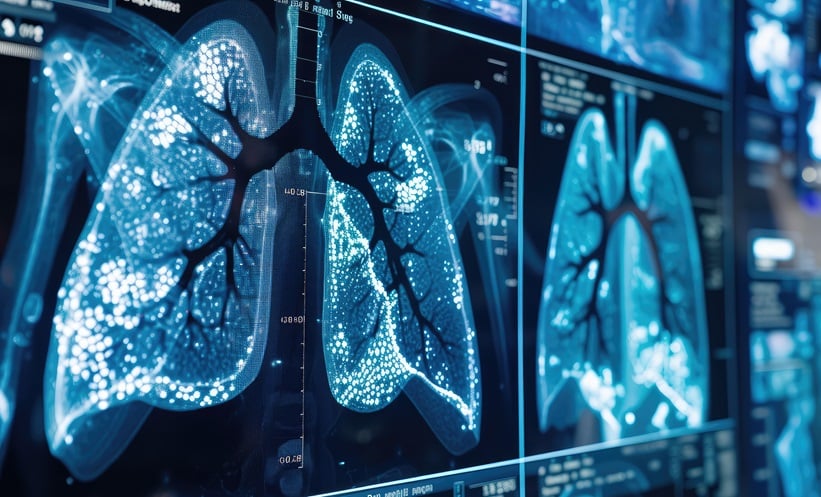MEASURING visceral adipose tissue (VAT) volume on unenhanced chest CT scans could be a valuable prognostic tool for patients with oesophageal cancer, according to research presented at the Radiological Society of North America (RSNA) meeting this year.
The study, led by Akinori Hata of Osaka University School of Medicine, Japan, found a significant association between higher VAT volume, as quantified using artificial intelligence (AI), and reduced survival rates. “VAT volume and CT attenuation obtained by AI were significantly associated with shorter survival in patients with oesophageal cancer,” Dr Hata told attendees.
Chest CT scans can reveal detailed insights into a patient’s body composition, including adipose tissue and muscle condition, the team explained. Previous studies have linked increased fatty tissue and muscle loss (sarcopenia) with poor outcomes in various diseases, including cancer.
Hata and his team developed an AI segmentation model to assess adipose tissue and muscle volume using data from lung cancer patients. The model identifies and quantifies subcutaneous adipose tissue (SAT), VAT, and paravertebral muscle. The researchers applied the model to 464 patients who underwent baseline CT scans for oesophageal cancer between 2011 and 2015, evaluating its performance and examining potential links to five-year survival rates.
Manual segmentation by three radiologists in 15 cases served as a benchmark to validate the AI’s accuracy, with the AI model demonstrating comparable performance. Key metrics included SAT volume, VAT volume, VAT/SAT ratio, and muscle attenuation values.
The study revealed that VAT volume remained a significant indicator of worse overall survival, even after adjusting for factors such as age, sex, body mass index, smoking history, and cancer stage. Patients with higher VAT volume had a hazard ratio of 1.26 for increased mortality, underscoring the potential impact of adipose tissue on survival outcomes.
“VAT volume may be a useful prognostic factor in patients with oesophageal cancer,” the authors concluded, suggesting AI-driven body composition analysis could aid in identifying high-risk patients and tailoring treatment strategies.
Reference
Hata A et al. Minimally invasive procedure relieves knee arthritis. RSNA Annual Meeting, 1–5 December, 2024.








